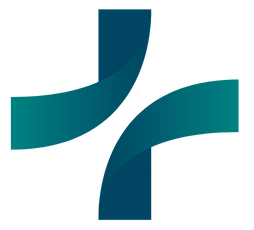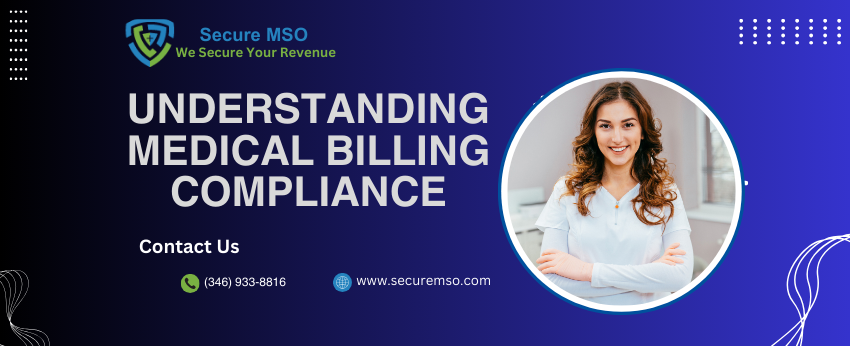Introduction
Medical billing is not at all an optional step; instead, it is essential. Compliance largely dominates for medical professionals and physicians. This blog will cover the vital subject of doctors and hospitals. Medical billing compliance demands that medical professionals and hospitals strictly follow the rules and laws when billing patients for services. Fairness and accuracy are what the rules are designed to uphold. It is essential to adhere to these rules or face significant consequences. Why is it vital that doctors and hospitals follow these rules? What occurs if they are non-compliant? Let’s see. Discovery awaits! Dive into understanding the importance of medical billing compliance.
What is the Medical Billing Process?
Once medical services are provided to patients, they must submit claims to their health insurers and actively pursue timely payment. This is known as medical billing.
The medical billing process consists of many steps. Each stage plays a part in forming the complete medical billing cycle. Timely payment relies on the satisfactory completion of each step. This process includes
- Ensuring a patient’s policy before intervention.
- Correctly coding medical services, and
- Submitting claims to insurance providers for reimbursement.
What is Compliance?
Compliance means adherence to the relevant laws and rules. This includes both domestic legal standards and regulator-mandated guidelines, as well as corporate internal policies. Various tools and methodologies are available to companies looking to promote compliance. Their primary function is to detect and remedy miss behaviour before it leads to severe consequences like criminal charges, fines, or irreversible damage to the company’s reputation.
What is Medical Billing Compliance?
Medical billing compliance is the accurate and legal charging for medical services provided. This operation takes place by meeting the laws and guidelines established by Medicare, Medicaid, and private insurance firms. Financial stability depends on it, influencing revenue, patient satisfaction, and legal integrity.
These guidelines include multiple aspects of medical billing, from proper coding techniques to claim submission, patient confidentiality, and more. Medical billing compliance includes following regulations developed by organizations such as:
Federal and State Laws
Healthcare billing laws encompass a wide range of regulations that aim to ensure fair and ethical practices in the healthcare industry. These laws govern various aspects of healthcare billing, including the prevention and detection of fraud and abuse, the protection of patient privacy and the security of their information, and the standards for billing and reimbursement. The regulations cover healthcare providers, insurers, and other entities involved in the healthcare system. Adherence to these laws is crucial in maintaining the integrity of the healthcare system and the trust of patients and stakeholders.
CMS stands for Centers for Medicare and Medicaid Services
CMS lays out detailed instructions for billing Medicare and Medicaid recipients. Here are some examples: medical necessity guidelines, coding accuracy, and thorough documentation.
Strict compliance with HIPAA ensures the safeguarding of patient data
Privacy and security of electronic health records are safeguarded by HIPAA regulations. Strict adherence to HIPAA guidelines is vital to escape punishment and safeguard patient reliance.
Private Insurance Companies
Insurance companies regularly have different billing processes and demands. Crucial to comprehension and adherence is grasping these guidelines.
Compliance with medical billing requirements is vital to avoid consequences like audits, fines, Denied claims, reputational damage, and legal action. Therefore, understanding and adhering to medical billing regulations is crucial for sustaining any healthcare organization’s financial well-being and legal standing.
Importance of Medical Billing Compliance
Accurate and reliable medical billing systems enable healthcare providers to function effectively, fostering success and endurance. Compliance is crucial; failure to comply could result in damaging consequences that affect a practice’s reputation and operations completely.
Implications
Financial repercussions may arise from non-adherence to medical billing guidelines. In 2022, the OIG reported that healthcare fraud-related judgments and settlements topped $3 billion. Reducing revenue and jeopardizing financial stability, these penalties endanger a practice’s longevity.
Legal Consequences
Penalties, both civil and criminal, are potential consequences of non-compliance. Restrictions on participation in federal health programs may have a profound effect on a practice’s patient base and revenue. The severity of punishment increases alongside the severity of the fraudulent billing.
Reputational Damage
In healthcare, establishing and maintaining trust and reputation is non-negotiable. A non-compliant practice faces severe reputational consequences. Once patient trust is lost, it can convert to fewer patients. In this particular sector, such an event could have fearful consequences.
Operational Disruptions
Investigations into non-compliance commonly lead to interruptions in a business’s functions. The necessity of diverting staff members from their duties affects both productivity and service provision during investigations or audits. Operations may need to pause temporarily in critical situations.
Integral to quality care: Commitment to Medical Billing Compliance
Sustaining medical billing standards reflects a facility’s resolve to prioritize patient care. Healthcare providers with flawless billing records exemplify a strong commitment to sustaining ethical standards and conforming to regulations. By complying with these requirements, one can not only evade unfavorable outcomes but also lay the groundwork for a prosperous and respected business.
Compliance must be focused in the realm of medical billing. A healthcare practice’s success depends on its ability to manage these key areas effectively. Compliance is not merely a formality but rather a foundational element in sustaining the dedication to high-quality and ethical healthcare.
Medical Billing Compliance: Central Elements to Observe
Accurate Coding
Compliance depends heavily on correct medical coding techniques. Appropriate coding demands the utilization of the current CPT, ICD, and HCPCS revisions. Directly impacting reimbursements, these codes determine the billing amounts, either leading to over- or under-billing and hefty penalties.
Thorough Documentation
Thorough documentation is essential for each service offered. As evidenced by the medical record, the care provided and billed is essential. Inaccurate documentation may cause claims denial, and audits, and could lead to legal problems.
Regular Audits
Consistent internal and external evaluations are vital for an effective compliance system. Audits help identify compliance risks, including coding flaws, inadequate documentation, or other issues. Tackling these problems head-on can save your practice from expensive fines and sustain its raised standing.
Compliance Training
Regardless of position, all staff should be trained on compliance processes. Let us examine crucial coding techniques, optimal documentation practices, comprehensive billing knowledge, and variations of applicable laws, including the False Claims Act and the Anti-Kickback Statute.
Ethical and Legal Standards
Ethics and the law demand a high level of maintenance. Adherence to HIPAA standards safeguards patient privacy and prevents acts like up coding, unbundling, or double billing which may result in unethical conduct.
Facilitating compliance, proper coding, detailed documentation, frequent evaluations, specialized instruction, a committed compliance office, and high moral and legal standards unite. By concentrating on these essential aspects, healthcare providers can establish a flourishing, compliant, and prosperous practice.
Navigating Medical Billing Compliance Challenges
Staying Updated
Constant updates to billing codes, laws, and regulations present an important obstacle in medical billing compliance. Accordingly, the shift from ICD-9 to ICD-10 expanded code options from approximately 13,000 to more than 140,000. Utilizing regular training sessions, subscriptions to industry publications, and alerts from regulatory bodies can maintain your practice’s relevance.
Technology Integration
Integrating technology can significantly improve medical billing compliance challenges management. Comprehensive solutions like Electronic Health Records (EHRs), practice management systems, and AI-driven coding techniques can facilitate smooth billing operations, minimize mistakes, and guarantee regulatory conformity. Although crucial, choosing the ideal technology and adequately preparing employees to utilize it requires significant effort.
Dealing with Payer Specifics
Payers typically have separate guidelines. Requirements vary among Medicare, Medicaid, and private insurance providers regarding claim submission and repayment. Confronting differences calls for concerted effort and obligatory conformity.
Maintaining Patient Confidentiality
Patient data protection is mandated by HIPAA for healthcare professionals. As the amount of digital patient information grows, so does the danger of data breaches. Therefore, data protection is vital.
Staff Turnover
Ongoing medical billing compliance is challenged in healthcare settings where staff turnover is high. Turnover affects comprehension of compliance norms; frequent employee turnover leaves knowledge gaps widening. On boarding and training play a vital role in resolving this concern.
Resource Limitations
Limited resource availability frequently creates difficulties for small practices regarding compliance management. Finding the means to hire dedicated medical billing compliance officers or investing in sophisticated technologies is not always feasible. When problems like these arise, choosing to outsource medical billing or adopt cloud-based compliance systems can be an important decision.
Effectively navigating medical billing compliance obstacles depends on staying updated on regulatory shifts, integrating technology, grasping payer specifics, protecting patient privacy, managing employee turnover, and cleverly dealing with resource hurdles. These challenges when addressed successfully lead to streamlined billing practices that are legally sound, streamlined, and financially rewarding.
Conclusion
Without proper adherence to medical billing protocols, a medical practice’s success may be exposed to danger. Keen attention to coding advancements, diligent documentation, regular audits, effective technology integration, ongoing training, proficient policy interpretation, and patient confidentiality are mandatory for success. Focusing on key areas, providers can optimally align their practices with ethics and profitability. Healthcare providers must contend with compliance, a crucial regulatory consideration tied to the delivery of top-notch patient care.
FAQs
What is medical billing compliance, and why is it essential for healthcare practices?
Medical Billing compliance refers to precise and legal charges applicable to medical services, concurrently abiding by federal and state regulations, and guidelines offered by organizations such as CMS and HIPAA, along with insurance providers’ requirements. It is important for healthcare practices because it ensures patient satisfaction, legal standing, and financial health,
What are the consequences of non-compliance with regulations of medical billing?
Non-compliance can invite discipline including audit fines, claim denials, reputational harm, and legal proceedings. Civil and criminal penalties, exclusion from federal health programs, and imprisonment may await those involved in fraudulent billing practices.
How can healthcare providers improve their billing accuracy through coded practices?
Ensuring correct coding entails utilizing current CPT, ICD, and HCPCS codes for every medical intervention furnished. Avoiding inaccuracies in billing based on staying informed about code updates and using them correctly.
Which key factors form the foundation of a rigorous medical billing compliance strategy?
A thorough compliance program integrates various essential components, including exact coding, detailed documentation, frequent audits, employee training, commitment to ethical and legal rules (such as HIPAA), and a specialized team responsible for medical billing compliance.
How can healthcare providers effectively navigate billing requirements related to specific payers?
The intricacies surrounding Medicare, Medicaid, and varied insurance companies demand meticulous navigation. Arming yourself with knowledge of these demands, keeping your team informed, and deploying the right tools can help your practice navigate payer-specific challenges.
For Invaluable Insights and Daily Updates, Follow Us on LinkedIn or join us on Quora.

